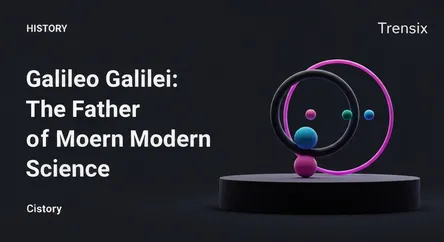History
Galileo Galilei: The Father of Modern Science

Discover Galileo Galilei, the Italian astronomer whose groundbreaking discoveries and defense of a sun-centered universe changed our world.
What is it?
Galileo Galilei (1564-1642) was an Italian astronomer, physicist, and engineer, often called the "father of modern science." Using a telescope he significantly improved, Galileo made revolutionary astronomical observations. He discovered the four largest moons of Jupiter, the phases of Venus, sunspots, and the rugged, mountainous surface of the Moon. These findings challenged the long-held geocentric model, which placed Earth at the center of the universe. Galileo's work in physics also included fundamental studies on motion, inertia, and the law of falling bodies.
Why is it trending?
Galileo remains a pivotal figure in history because his work represents a major turning point in the relationship between science, philosophy, and religion. His advocacy for Nicolaus Copernicus's heliocentric (sun-centered) model brought him into direct conflict with the Catholic Church. In 1633, the Roman Inquisition tried him, found him "vehemently suspect of heresy," and sentenced him to house arrest for the rest of his life. This dramatic clash, often termed the "Galileo affair," continues to be a widely discussed topic concerning intellectual freedom and the challenging of established authority.
How does it affect people?
Galileo's insistence on observation and experimentation laid the foundation for the modern scientific method. His discoveries fundamentally altered humanity's understanding of the cosmos and our place within it. The principles of motion he developed were later expanded upon by Isaac Newton, forming the basis of classical mechanics. His legacy inspires the continuous questioning of established norms in the pursuit of knowledge and underscores the vital importance of scientific evidence in shaping our view of the natural world.